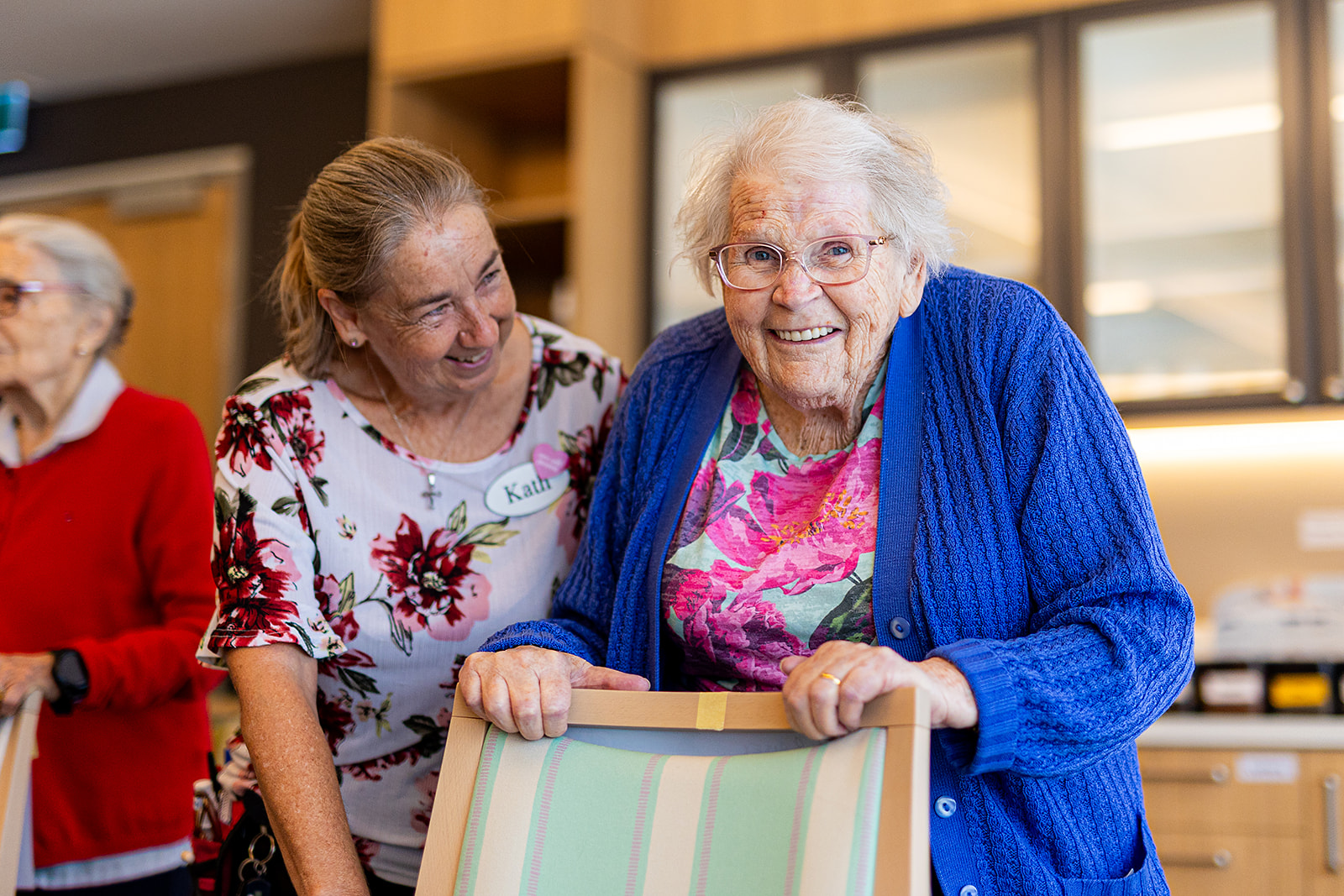Don’t Fall for It
How Nutrition Plays a Key Role in Preventing Falls
By Neline Goosen, Accredited Practising Dietitian at Catholic Homes
Did you know people aged 65 and over are in the age group most at risk of falls?1
In Western Australia, falls account for
- 24% of injury hospitalisations1
- 35% of injury-related deaths1
- 13% of emergency department injury visits1
Falls can have a profound impact on older adults, especially when they’re already dealing with reduced appetite, muscle loss, low energy, and poor nutrition. These challenges often go hand in hand, creating a cycle that’s hard to break. Poor appetite can result in inadequate energy and protein intake, which contributes to muscle loss and decreased strength. This, in turn, increases the risk of falling and slows down recovery. Even everyday activities can become more challenging when the body isn’t receiving the necessary nourishment.
Importantly, exercise or physical therapy without sufficient nutrition, especially protein and energy, can increase the risk of malnutrition and limit the benefits of rehabilitation. Nutrients such as protein, calcium, vitamin D, and hydration are essential for maintaining strength and preventing falls2.
A recent study in residential aged care3 found that increasing dairy intake to four servings daily, through milk, yoghurt, and cheese, had a significant impact.
These dairy foods are protein-rich, rebuilding muscle, and calcium-rich, supporting bone strength—key allies in fall prevention, even into our 90s2.
Residents who followed this approach experienced 33% fewer fractures overall, 46% fewer hip fractures, and an 11% reduction in falls. These everyday foods, rich in protein and calcium, strengthen bones and muscles, helping to protect against serious injury.
Nutrition tips to support protein, calcium, vitamin D, and hydration
Protein to maintain muscle strength.
- Include a protein-rich food at every meal. Think eggs for breakfast, tuna or chicken for lunch, and meat, fish, or legumes for dinner.
- Try dairy snacks like yoghurt or a glass of milk between meals.
- Add nuts, seeds, or nut butter to porridge, smoothies, or toast.
- Choose high-protein soups (e.g., lentil, chicken) or enrich homemade soups with powdered milk or grated cheese.
Calcium to maintain bone strength.
- Aim for 4 servings of calcium-rich foods daily, like 2 cups of milk, 200g of yoghurt, and 2 cheese slices.
- Choose calcium-fortified plant-based alternatives if you don’t consume dairy.
- Add grated cheese to mashed potato, soups, or vegetables.
- Use tinned salmon or sardines (with bones) for an extra calcium boost.
Vitamin D supports bone and muscle health.4
- Although we consume a small amount of dietary vitamin D from foods such as oily fish (salmon, mackerel), eggs, and fortified margarine or cereals, our main source of vitamin D comes from the sun.
- If you spend very little time in the sun, have naturally dark skin, or have a medical condition which can impact your ability to absorb/process vitamin D, you are at risk of vitamin D deficiency.
- If you are at risk of vitamin D deficiency, your doctor may test your vitamin D level (with a blood test).
Hydration to stay alert and steady.
- Usually 6–8 cups of fluid a day is recommended to stay hydrated. All fluid sources, such as water, tea, milk, soups, jelly, and ice cream, all count.
- Keep a water bottle nearby and sip regularly, even if you’re not thirsty.
If you’re experiencing any of the signs mentioned above or feel you could benefit from a nutritional boost, it’s a good idea to speak with a dietitian. They can help you find simple, effective ways to improve your diet, support your strength, and reduce your risk of falls.
References
-
Australian Institute of Health and Welfare – National Hospital Morbidity Database. http://www.aihw.gov.au/
-
Bauer J et al. Evidence-based recommendations for optimal dietary protein in older people: a position paper from the PROT-AGE Study Group. Am J Med Dir Assoc, 2013 Aug;14(8):542-59
-
Luliano, S., Poon, S., Robbins, J., Bui, M., Wang, X., De Groot, L., Van Loan, M., Gashem Zadeh, A.,Nguyen, T., Seeman, E. (2021). Effect of dietary sources of calcium and protein on hip fractures and falls in older adults in residential care: cluster randomised controlled trial
-
https://healthybonesaustralia.org.au/your-bone-health/vitamin-d-bone-health/
